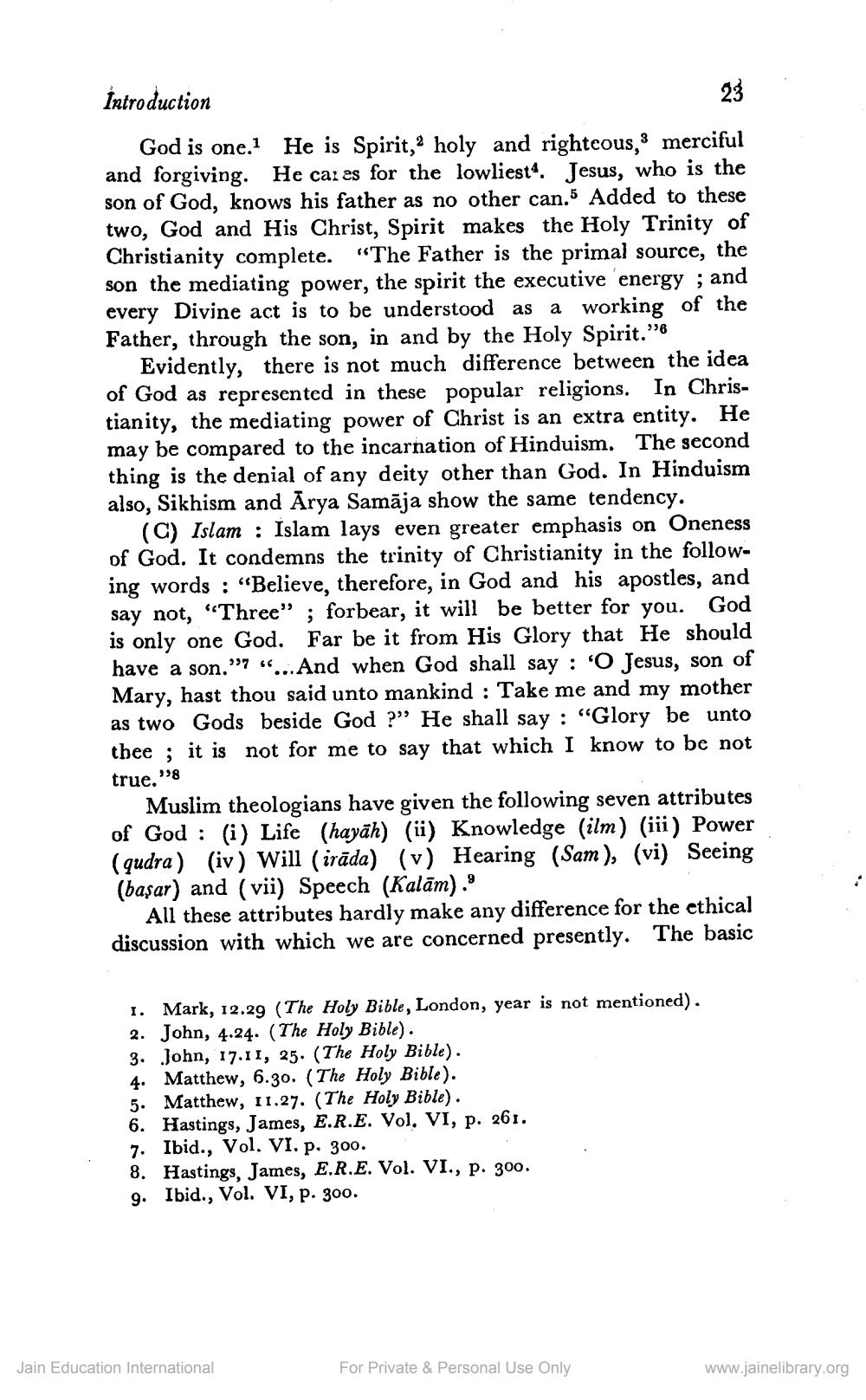________________
Introduction
23
God is one.1 He is Spirit, holy and righteous, merciful and forgiving. He cares for the lowliest. Jesus, who is the son of God, knows his father as no other can.5 Added to these two, God and His Christ, Spirit makes the Holy Trinity of Christianity complete. "The Father is the primal source, the son the mediating power, the spirit the executive energy; and every Divine act is to be understood as a working of the Father, through the son, in and by the Holy Spirit."
Evidently, there is not much difference between the idea of God as represented in these popular religions. In Christianity, the mediating power of Christ is an extra entity. He may be compared to the incarnation of Hinduism. The second thing is the denial of any deity other than God. In Hinduism also, Sikhism and Arya Samaja show the same tendency.
(C) Islam Islam lays even greater emphasis on Oneness of God. It condemns the trinity of Christianity in the following words: "Believe, therefore, in God and his apostles, and God say not, "Three"; forbear, it will be better for you. is only one God. Far be it from His Glory that He should have a son." "...And when God shall say: 'O Jesus, son of Mary, hast thou said unto mankind : Take me and my mother as two Gods beside God?" He shall say: "Glory be unto thee; it is not for me to say that which I know to be not
958
true.
Muslim theologians have given the following seven attributes of God: (i) Life (hayah) (ii) Knowledge (ilm) (iii) Power (qudra) (iv) Will (irāda) (v) Hearing (Sam), (vi) Seeing (başar) and (vii) Speech (Kalam).9
All these attributes hardly make any difference for the ethical discussion with which we are concerned presently. The basic
1. Mark, 12.29 (The Holy Bible, London, year is not mentioned). 2. John, 4.24. (The Holy Bible).
3. John, 17.11, 25. (The Holy Bible).
4. Matthew, 6.30. (The Holy Bible).
5. Matthew, 11.27. (The Holy Bible).
6. Hastings, James, E.R.E. Vol. VI, p. 261.
7. Ibid., Vol. VI. p. 300.
8. Hastings, James, E.R.E. Vol. VI., p. 300.
9. Ibid., Vol. VI, p. 300.
Jain Education International
For Private & Personal Use Only
www.jainelibrary.org




